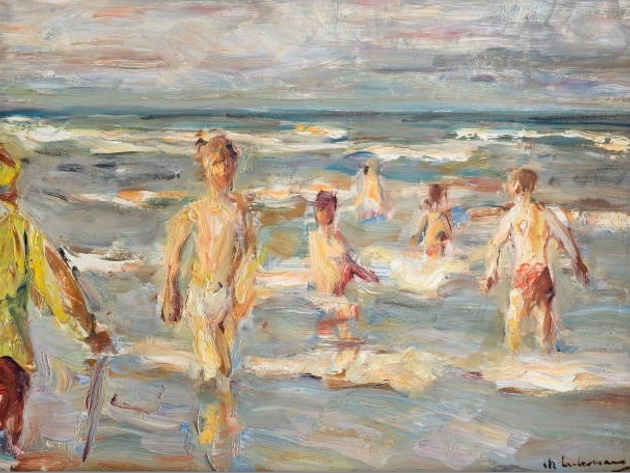
The first large retrospective of the German painter and graphic designer Max Liebermann (1847-1935) in Italy opens at the Goethe House Museum. Born in Berlin to a wealthy Jewish family, Liebermann undertook his artistic studies at the Weimar Academy of Art and is considered one of the most important innovators of late nineteenth-century German painting. In fact, his art and his activities, including that of president of the Berlin Secession and of the Prussian Academy of Arts, gave a significant impetus to the modernization of the Berlin art scene.
Through significant works, the exhibition reconstructs the most important phases of Liebermann's production, made up of drawings, paintings and prints. Initially dedicated to realism and naturalism, Liebermann was derisively defined as a "painter of the poor" due to the anti-academic themes with which he depicted hard work in the countryside. Around 1890, however, understanding the innovative power of French Impressionism, Liebermann approached the style of Édouard Manet and Edgar Degas, also starting to collect their paintings. During those years in fact, his palette brightens and the number of colors increases, even if the spatial construction remains firmly linked to naturalistic structures. The influence of impressionism is notable: the brightness and nuances of the tones are accompanied by the search for movement and the new elegance of the brushstroke, while his favorite themes become scenes of bourgeois life and portraits depicting, for example, equestrian pastimes in sea shore or young bathers on the Dutch coast.
Although Liebermann maintained close contacts with France and especially with the Netherlands, Italy also played a decisive role in his career as a painter. In fact, between 1878 and 1913 he went to our country at least six times. Furthermore, his works became part of the important museum collections of Venice, Florence, Milan, Rome and Trieste, some of which are gathered in the Goethe House Museum. The exhibition also features paintings from the Wannsee garden, family portraits and contemporary portraits from the collection of the Liebermann-Villa am Wannsee and other private collections in Germany; the latter is an opportunity to rediscover the places where Liebermann worked.
The catalog of the Max Liebermann exhibition in Italy is published in Italian and German by Alice Cazzola (curator of the exhibition), Lucy Wasensteiner (director of the Liebermann-Villa am Wannsee) and Gregor H. Lersch (director of the Goethe House Museum) and contains essays by Alice Cazzola, Sarah Kinzel, Enrico Lucchese and Lucy Wasensteiner.
The exhibition benefits from the patronage of the Embassy of the Federal Republic of Germany in Italy and of the Embassy of Italy in the Federal Republic of Germany.
Photo credits: Max Liebermann, Boys bathing, 1899, Gallery of Modern Art, Milan
Informations
Dal 20 settembre 2024 al 9 febbraio 2025
Dal martedì alla domenica dalle ore 10.00 alle 18.00
Chiuso il lunedì
Ultimo ingresso mezz'ora prima della chiusura
Per aggiornamenti e le modalità di visita consultare il > sito ufficiale
 Condividi
Condividi











































